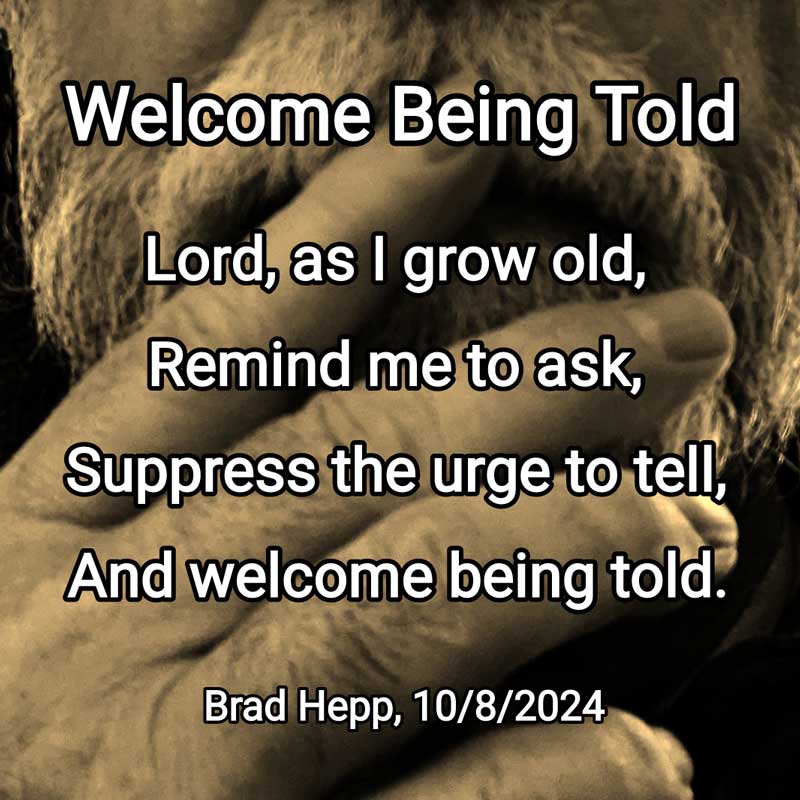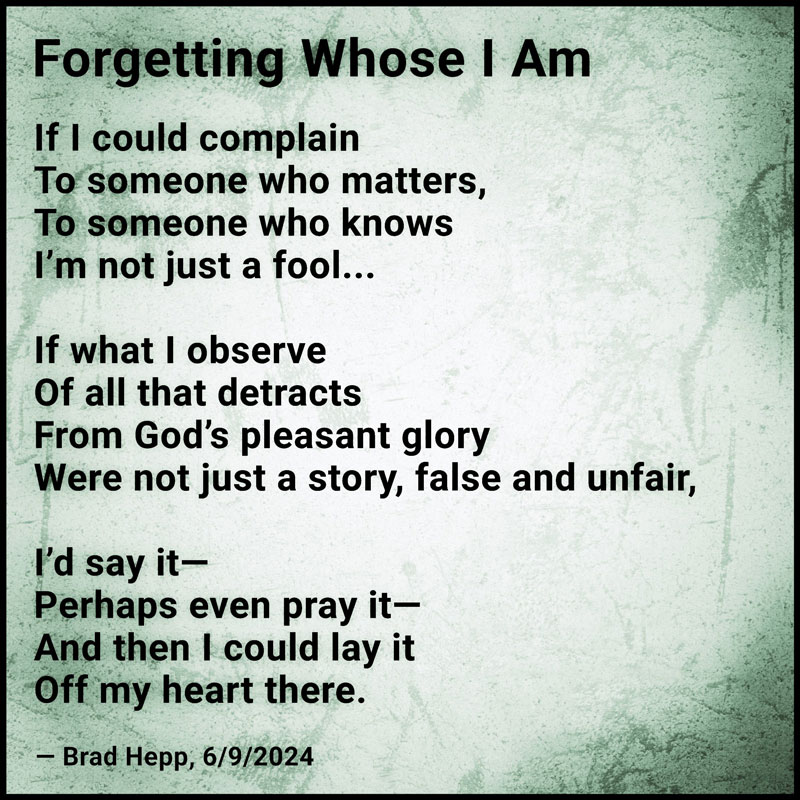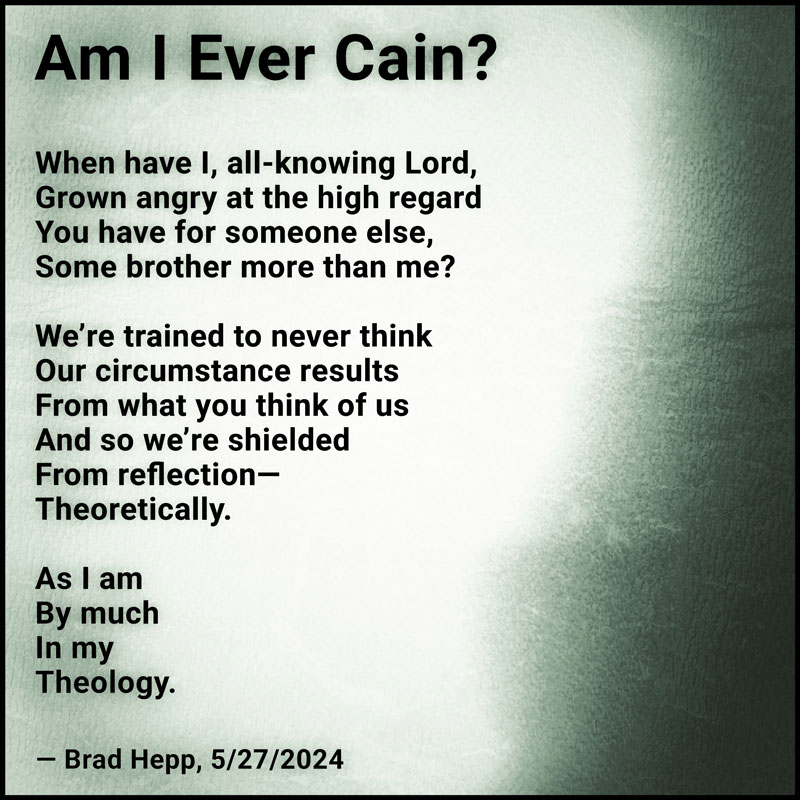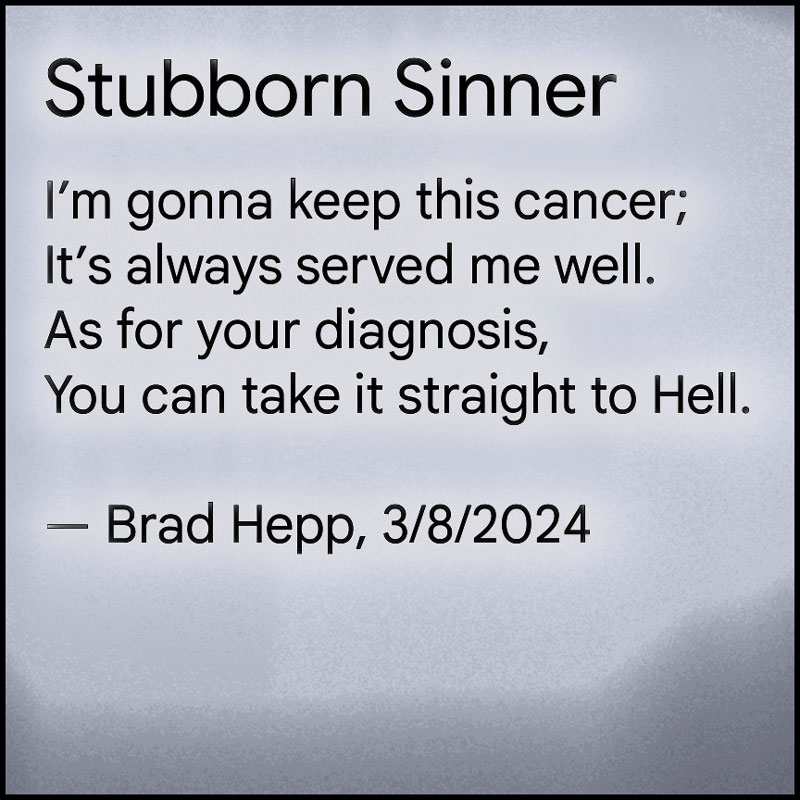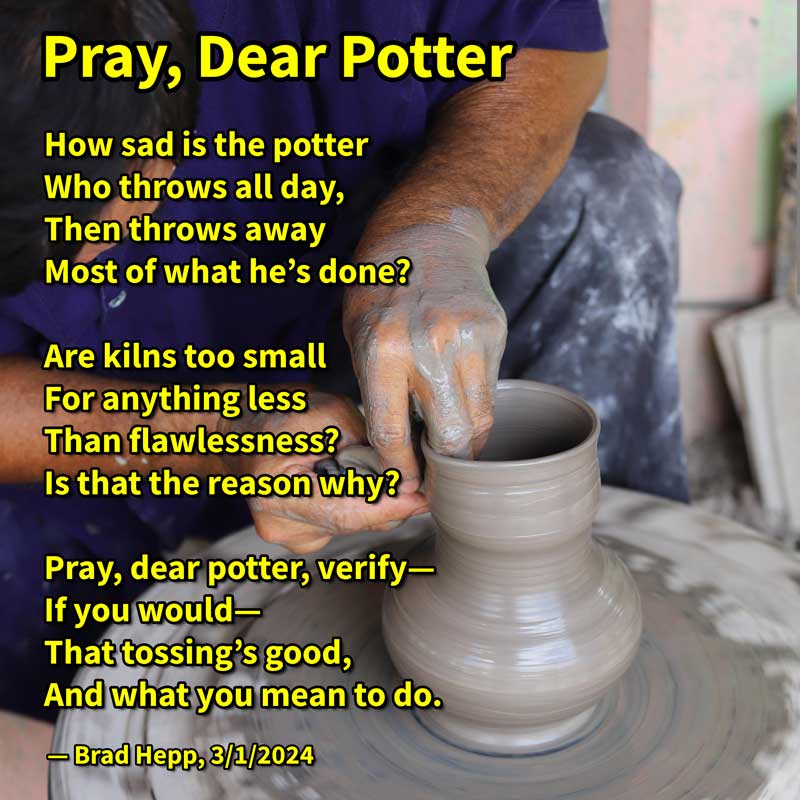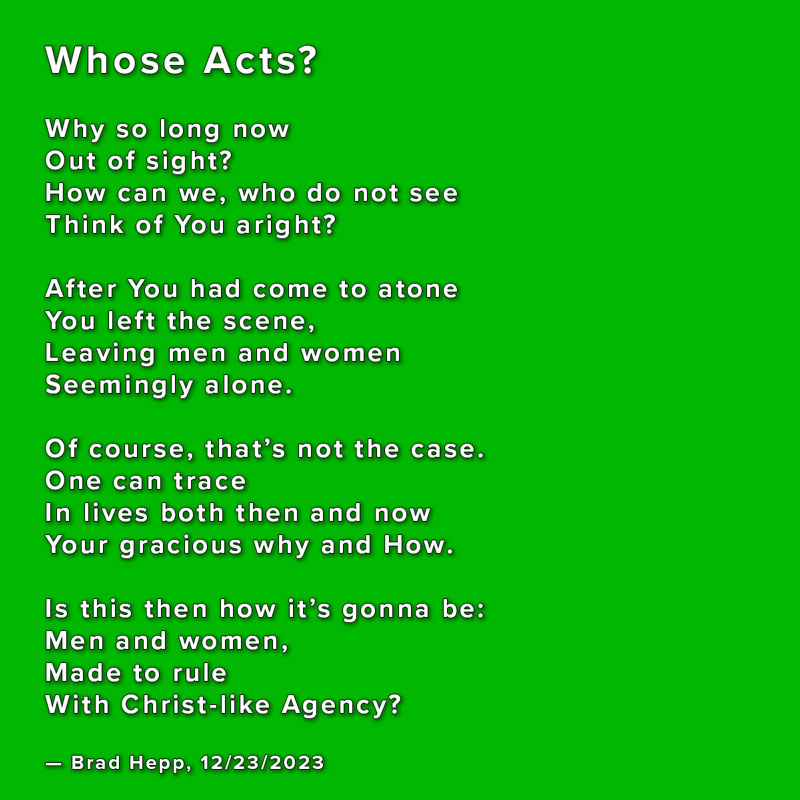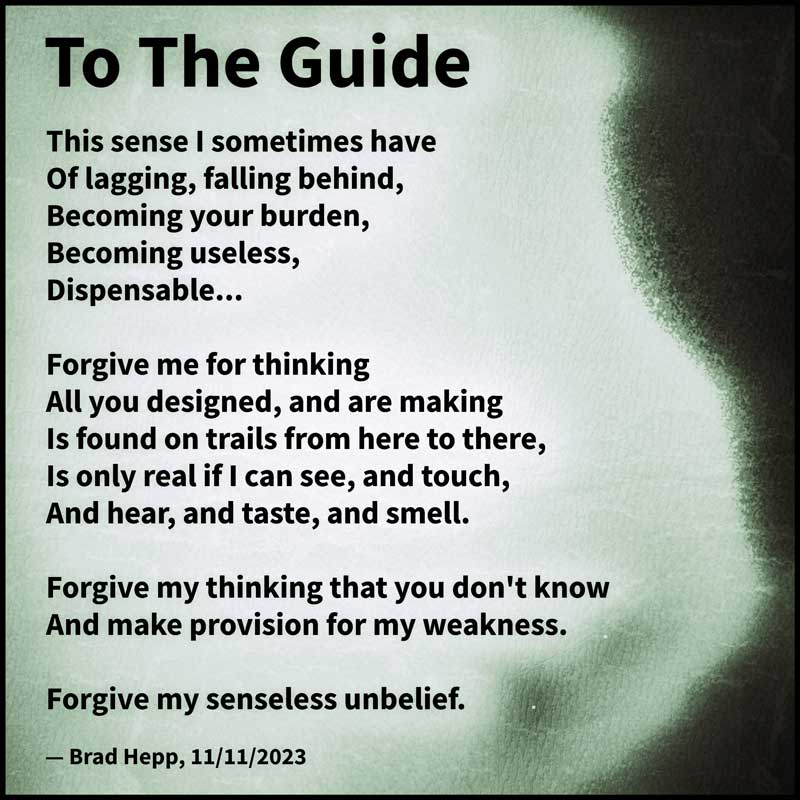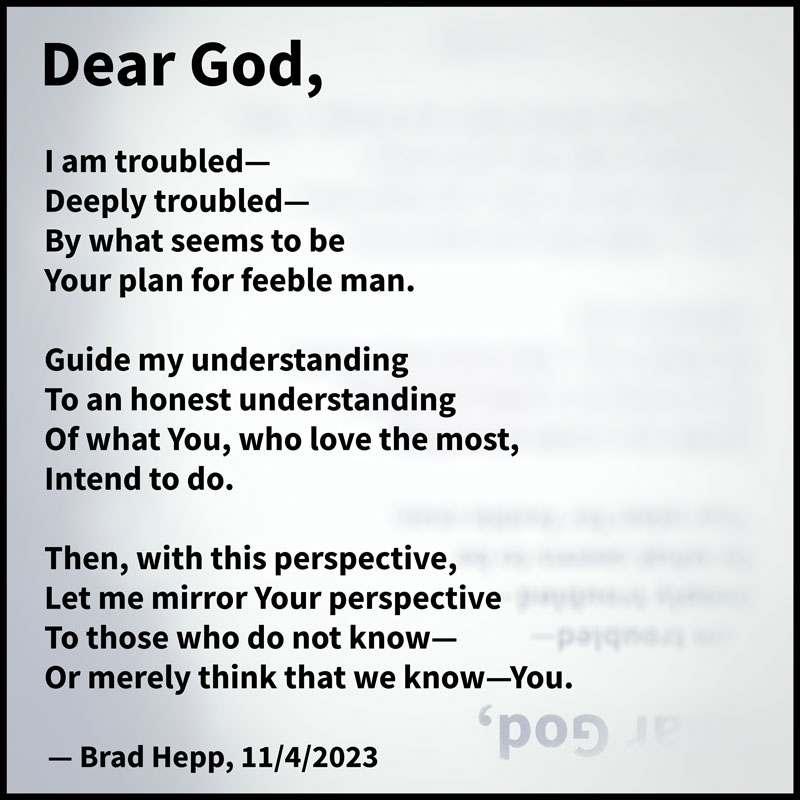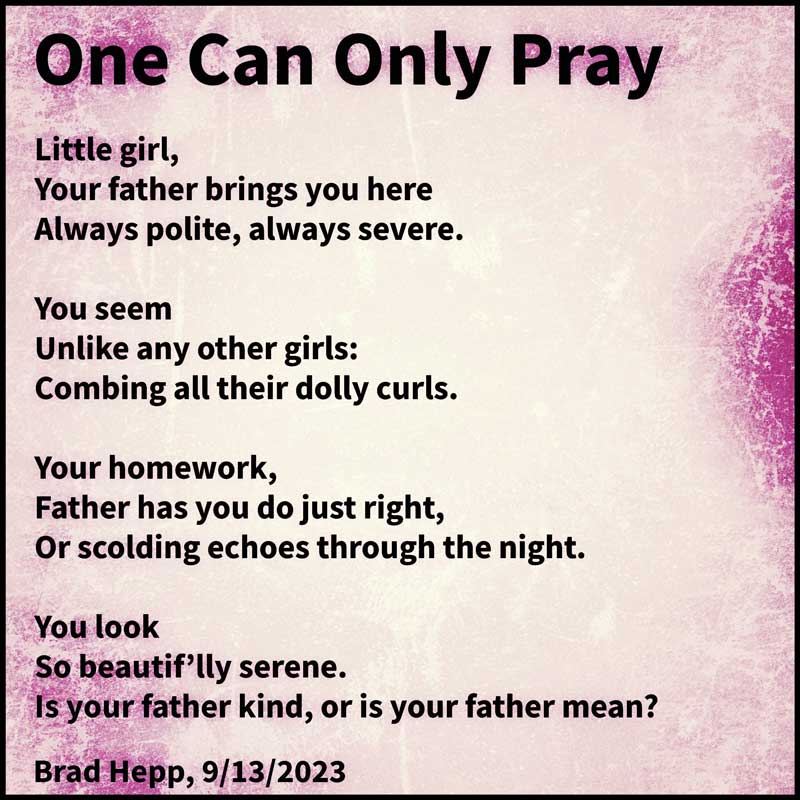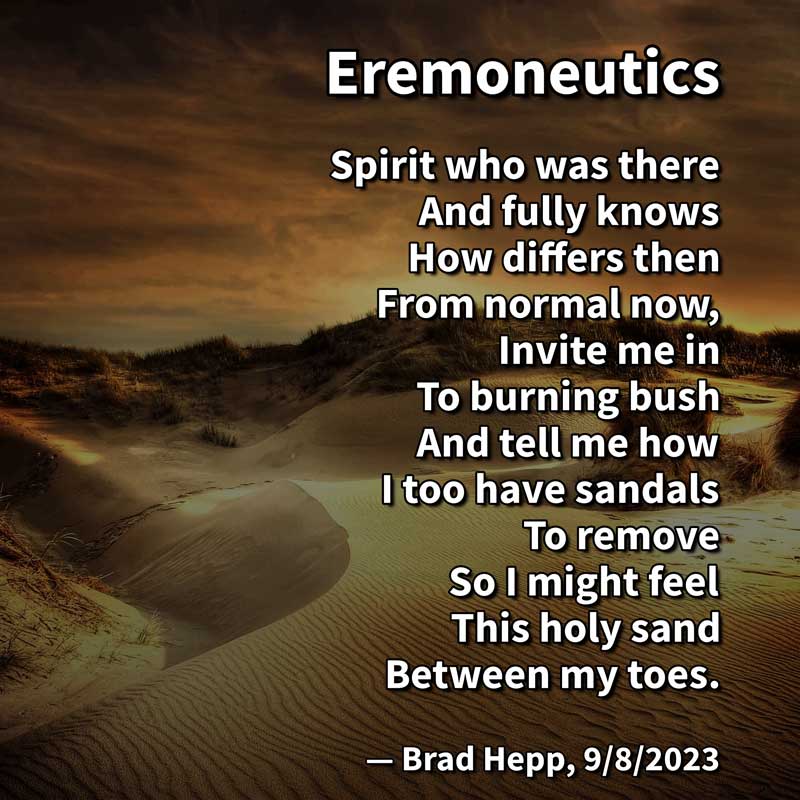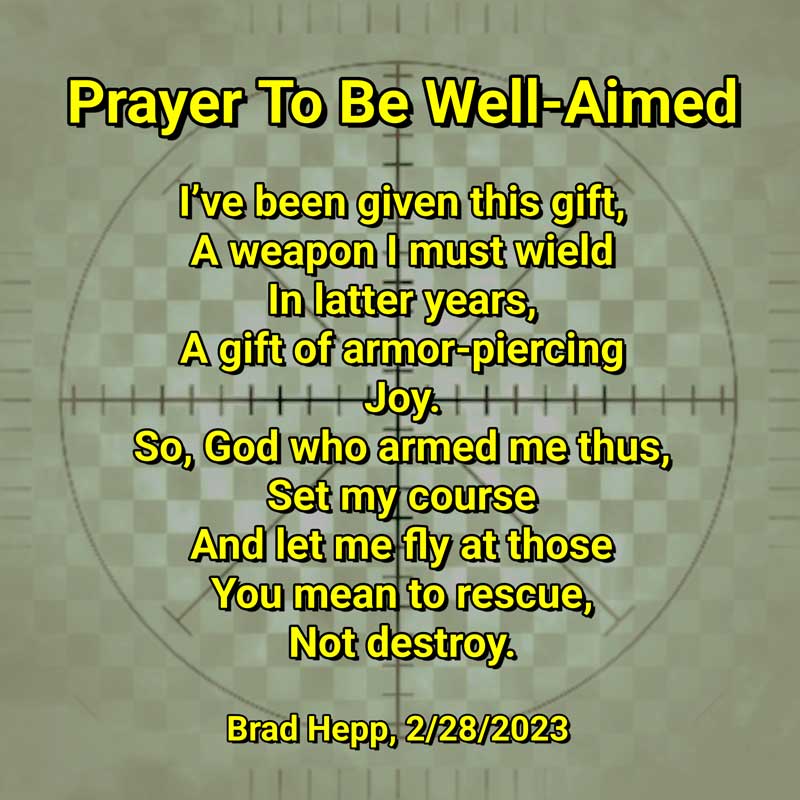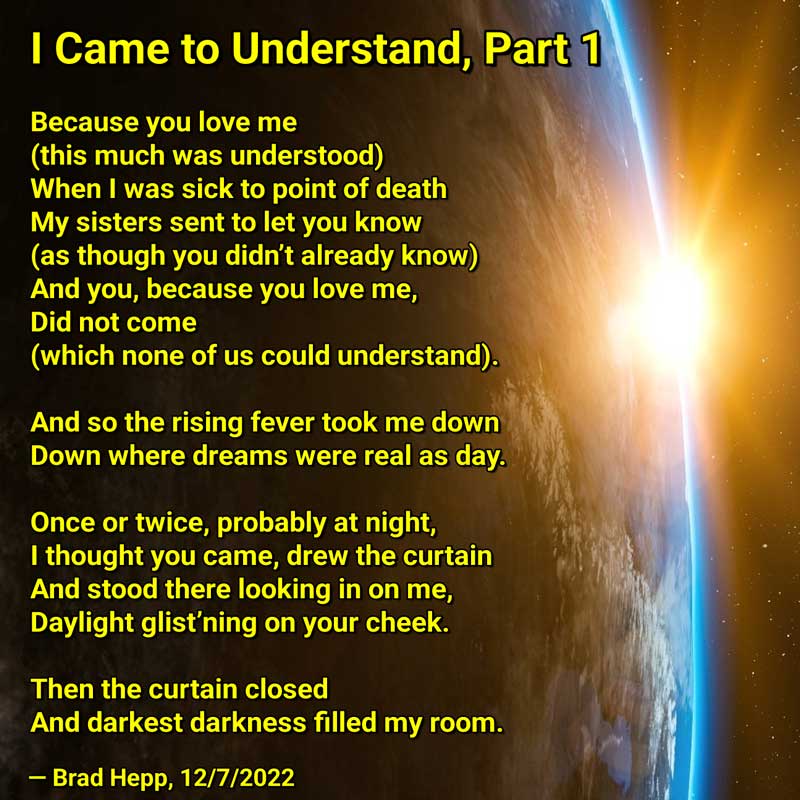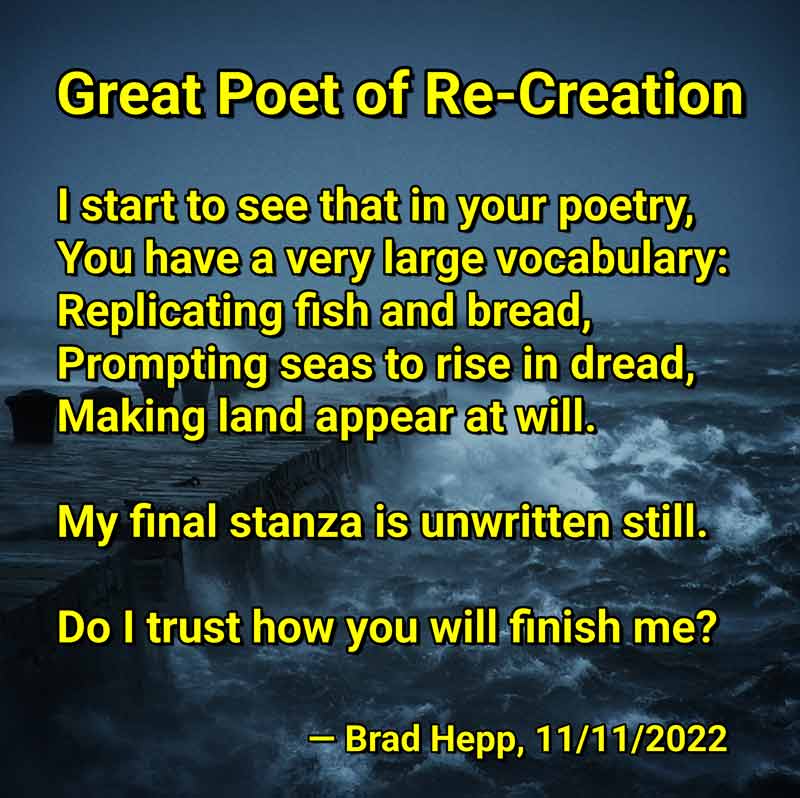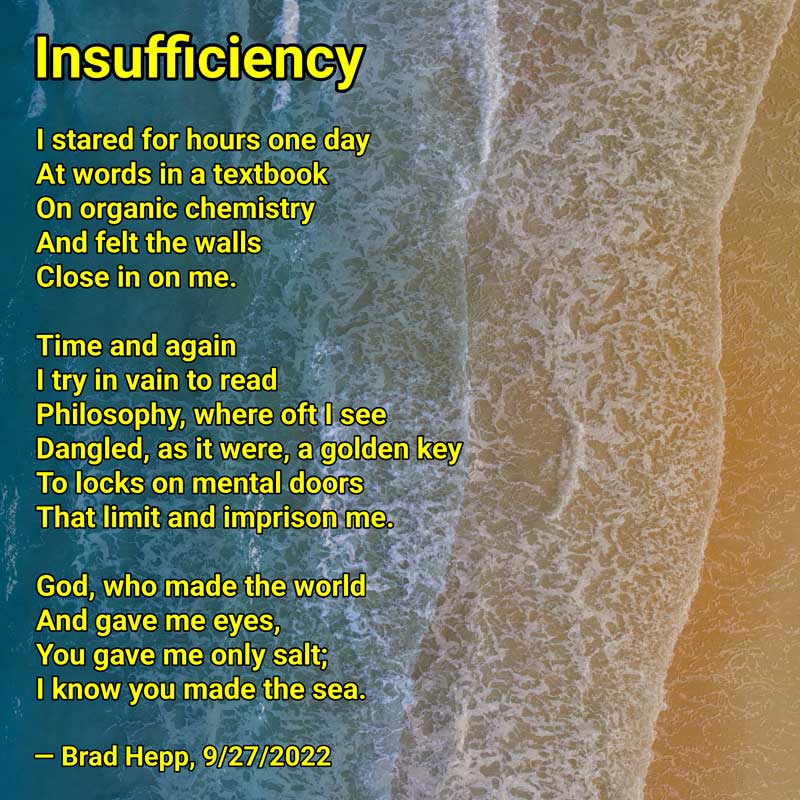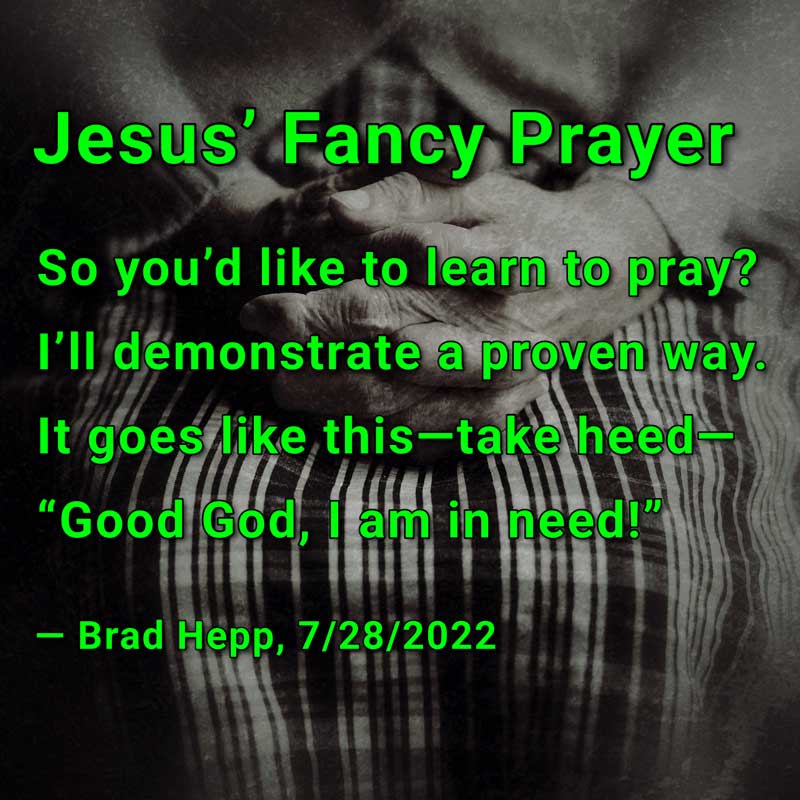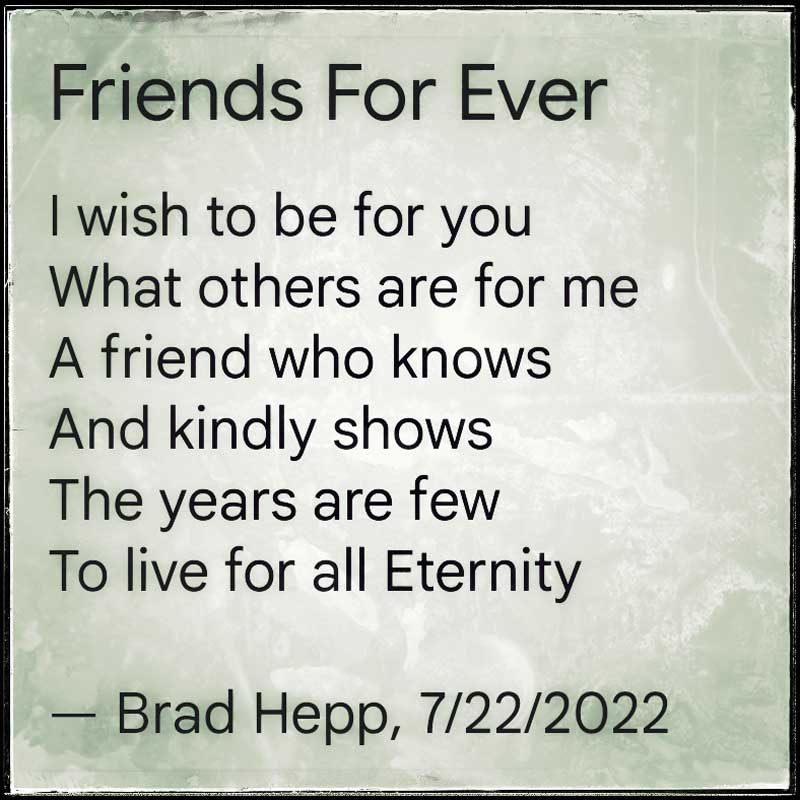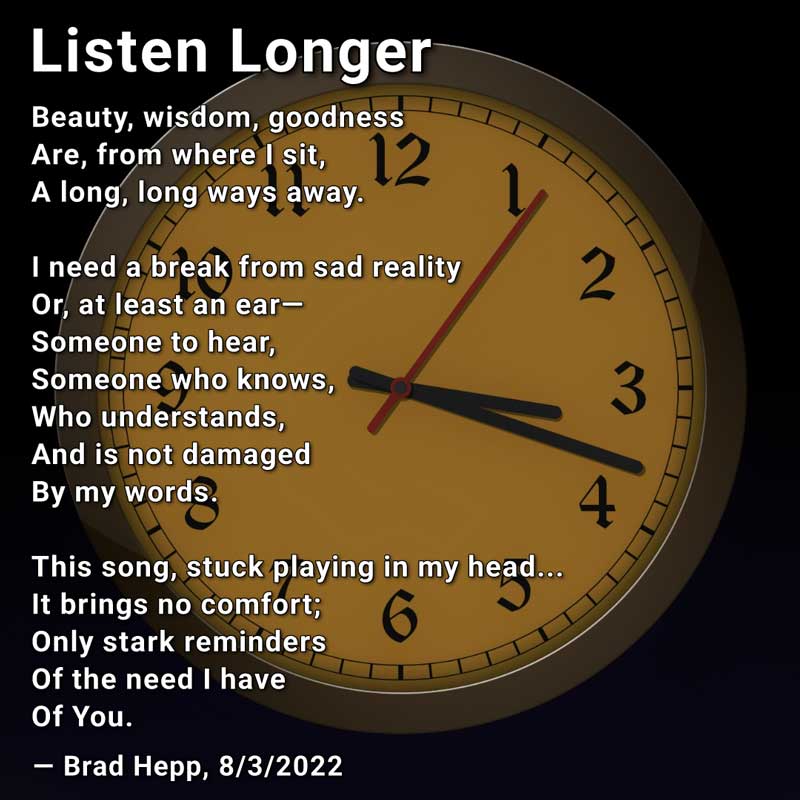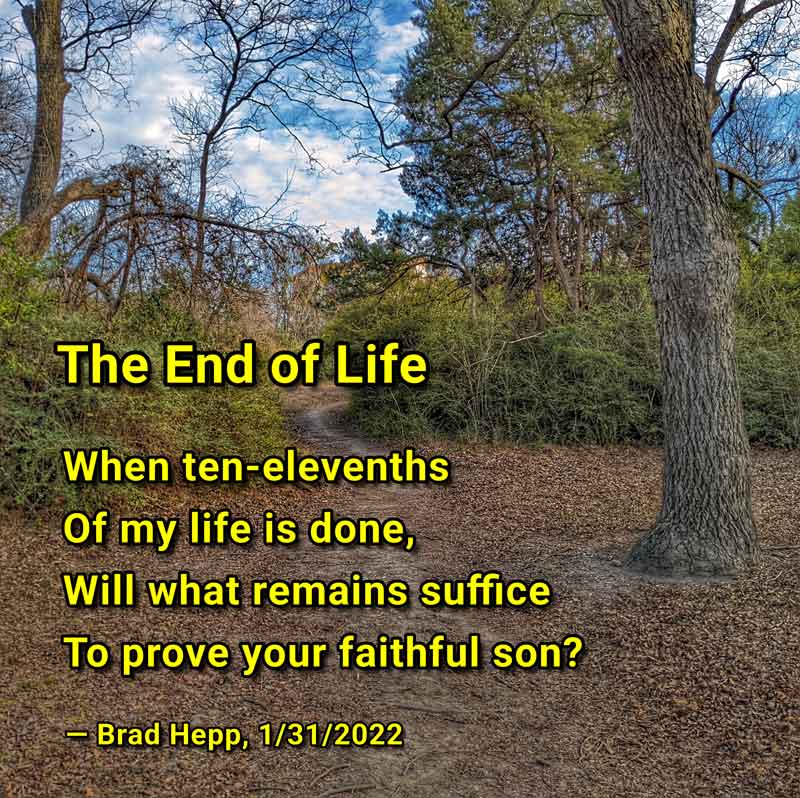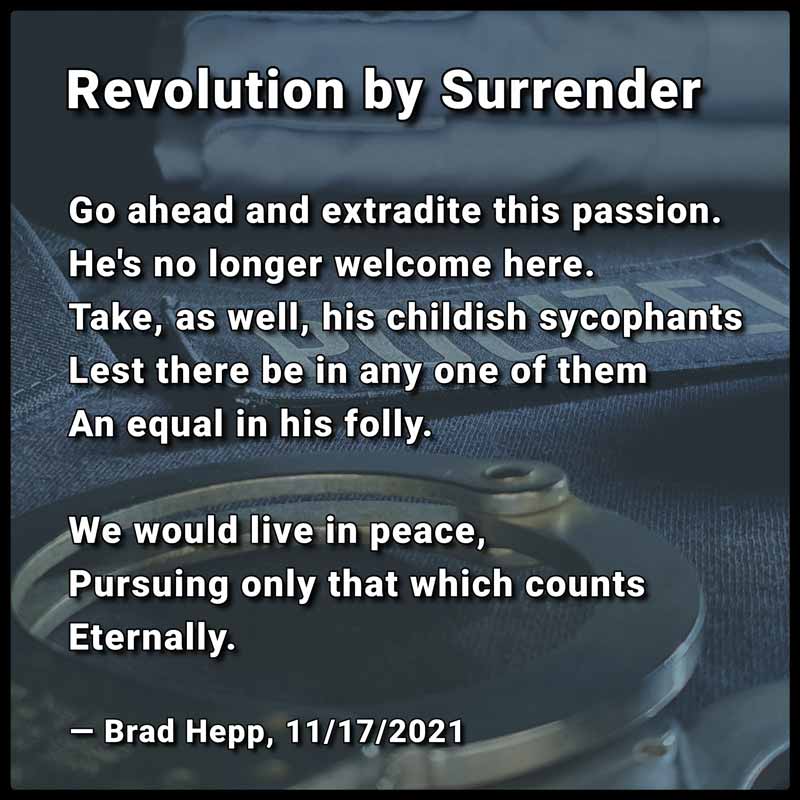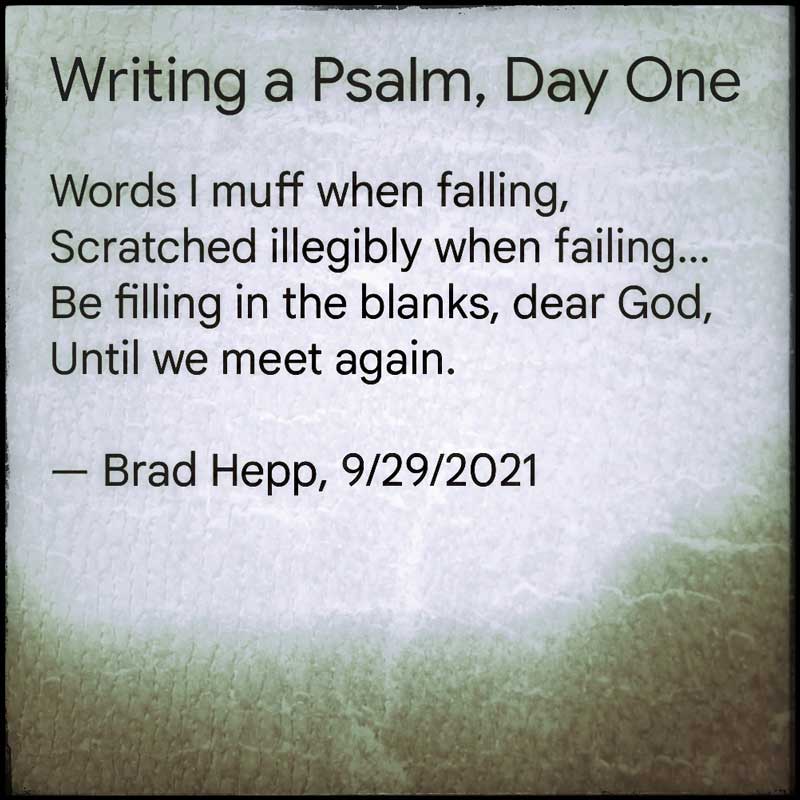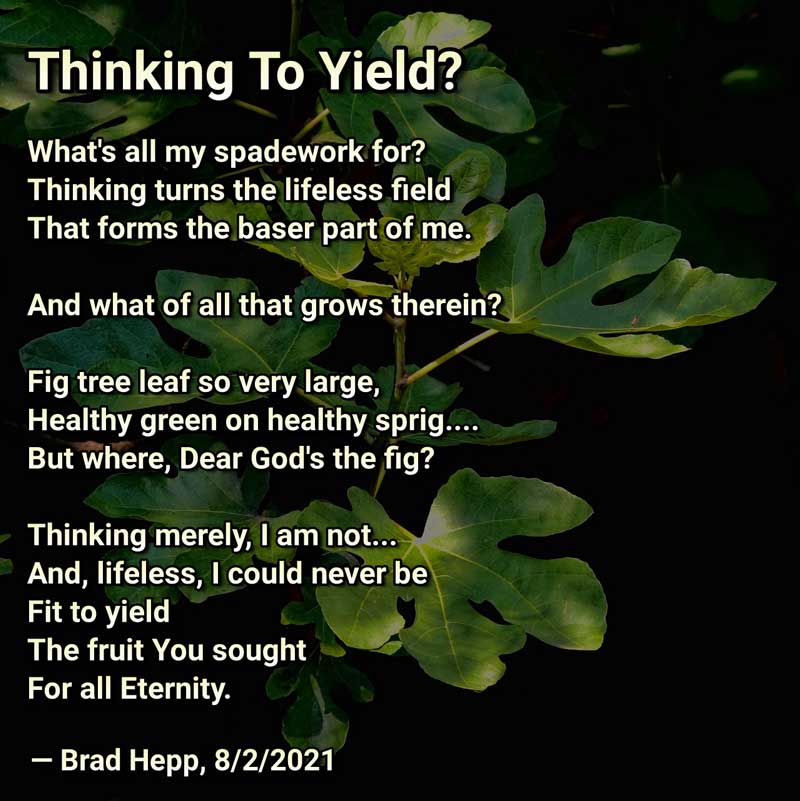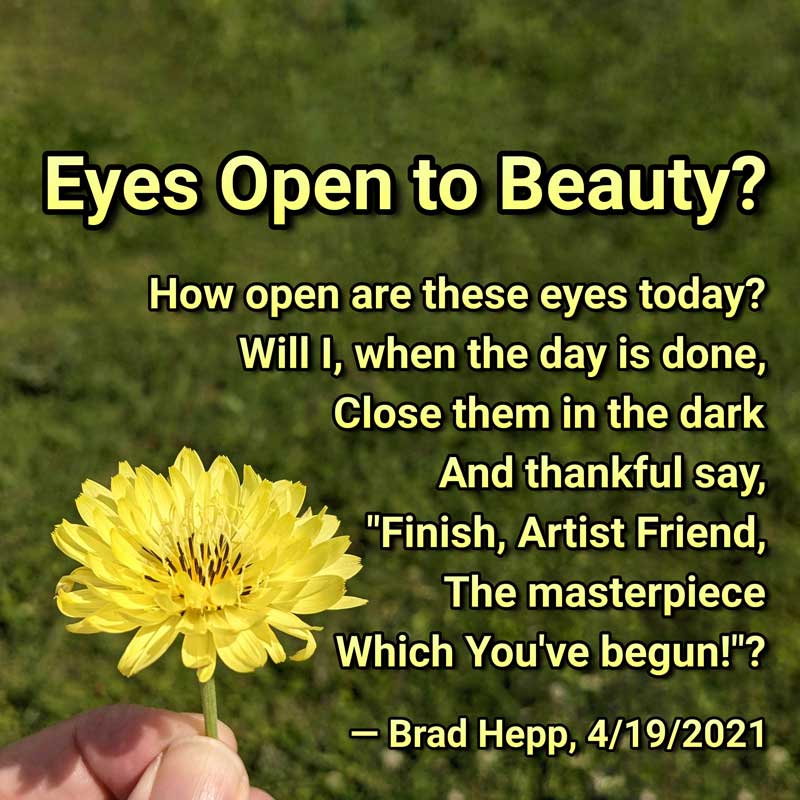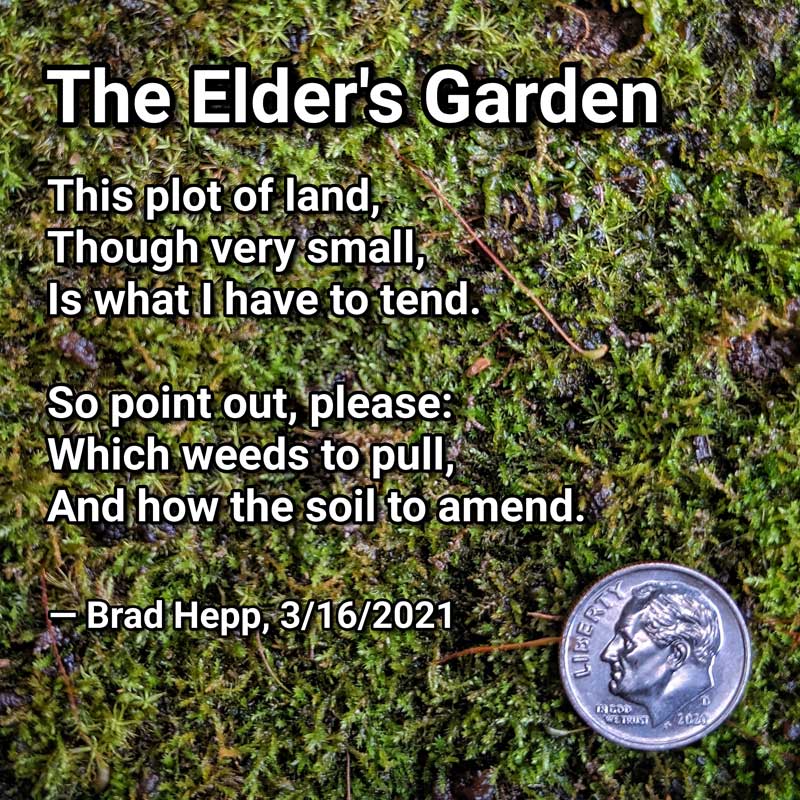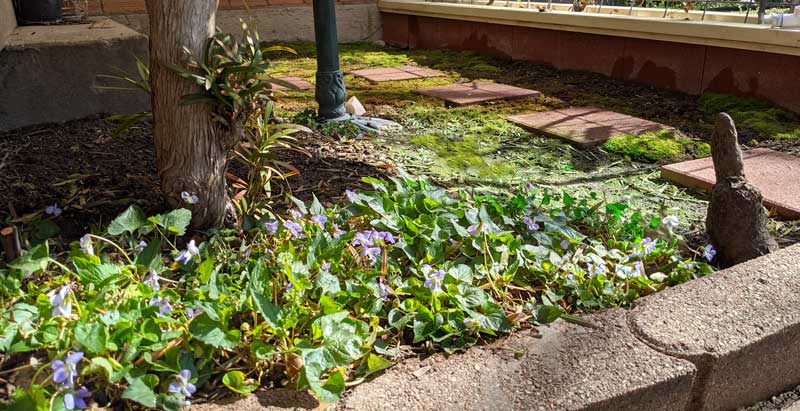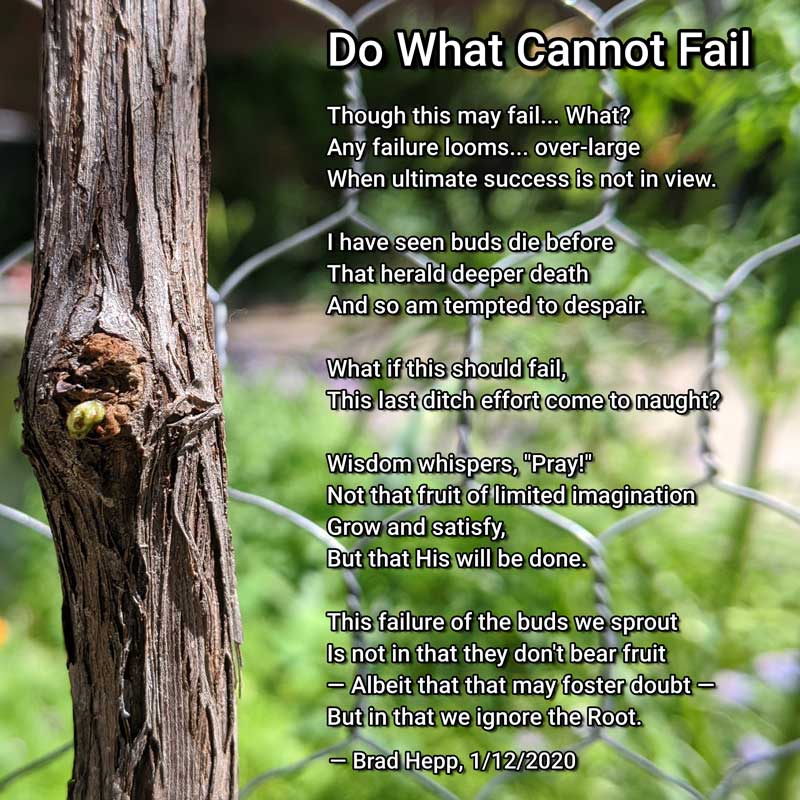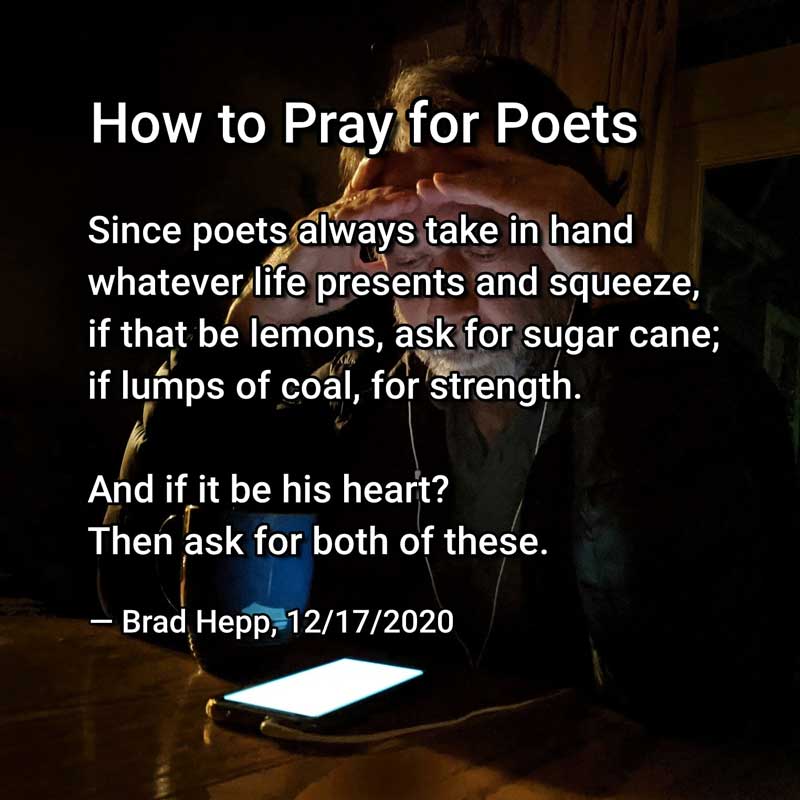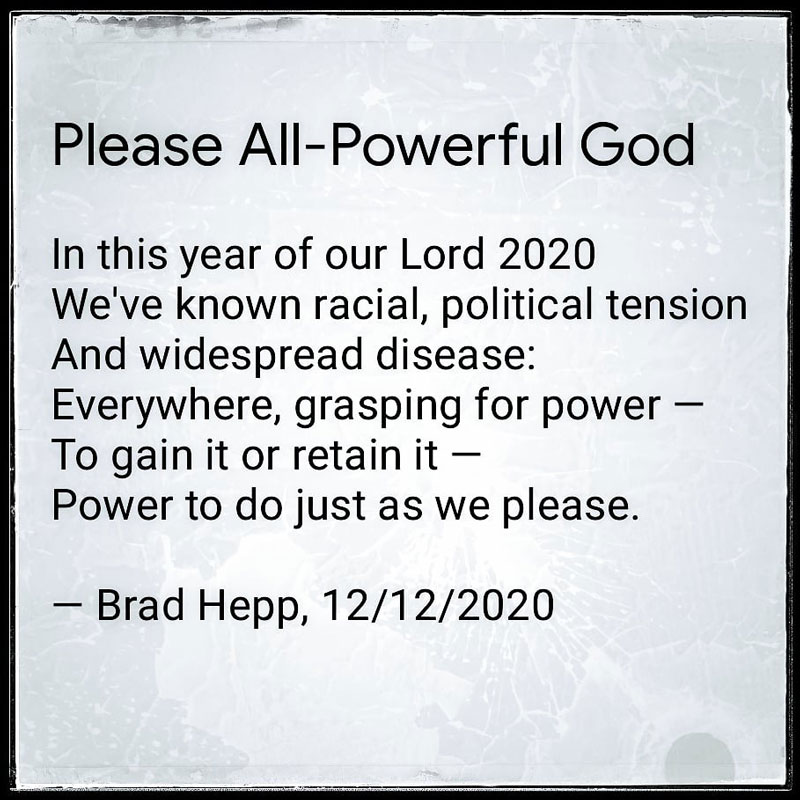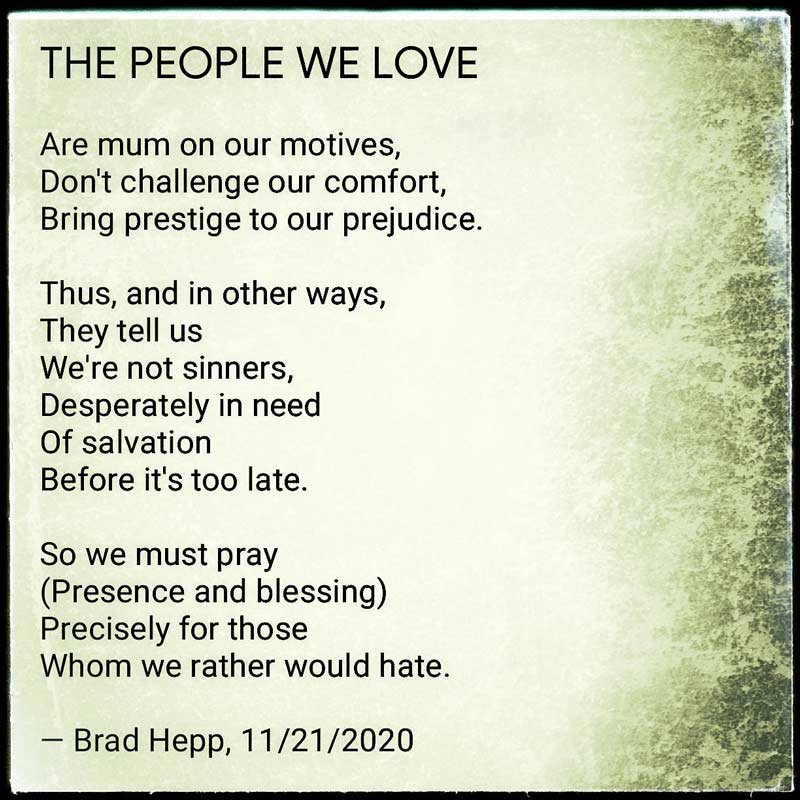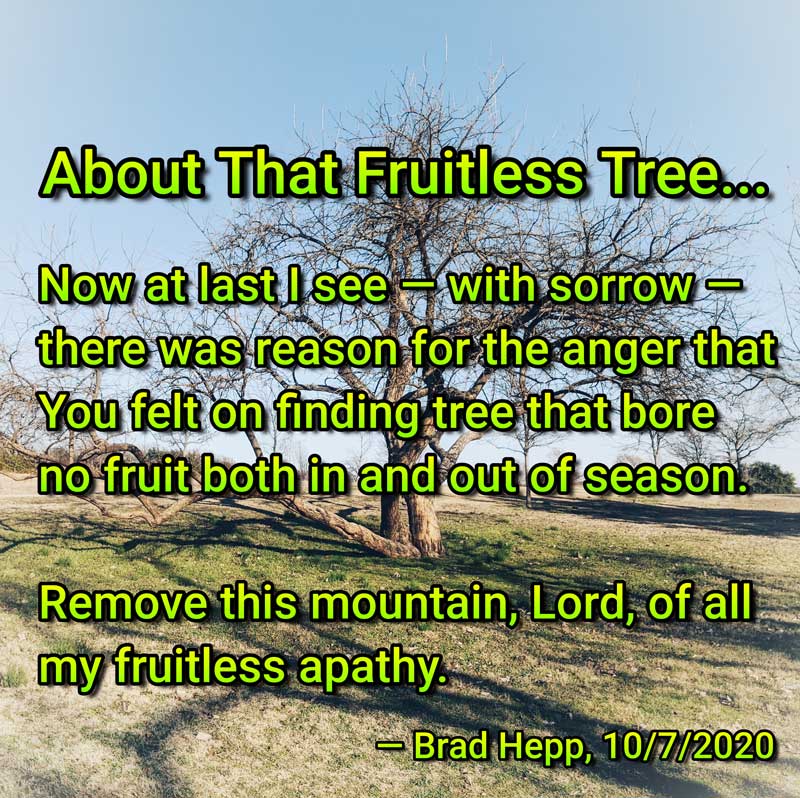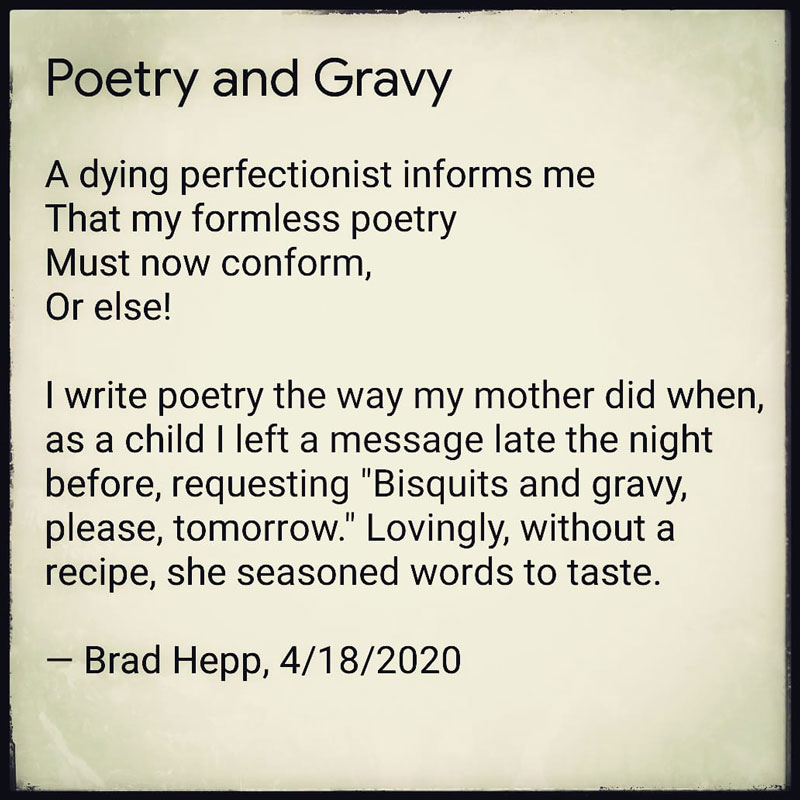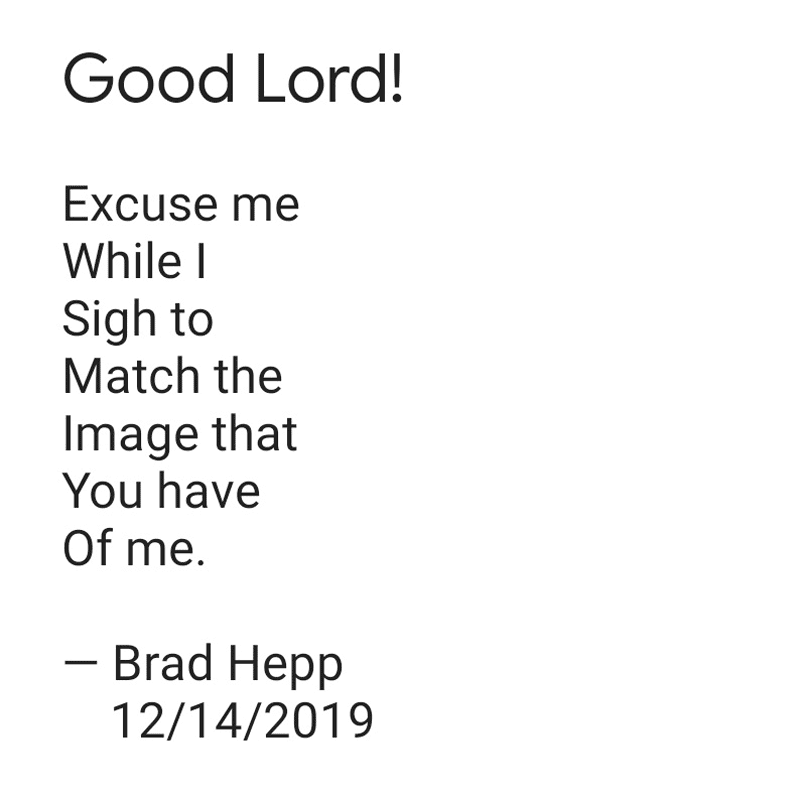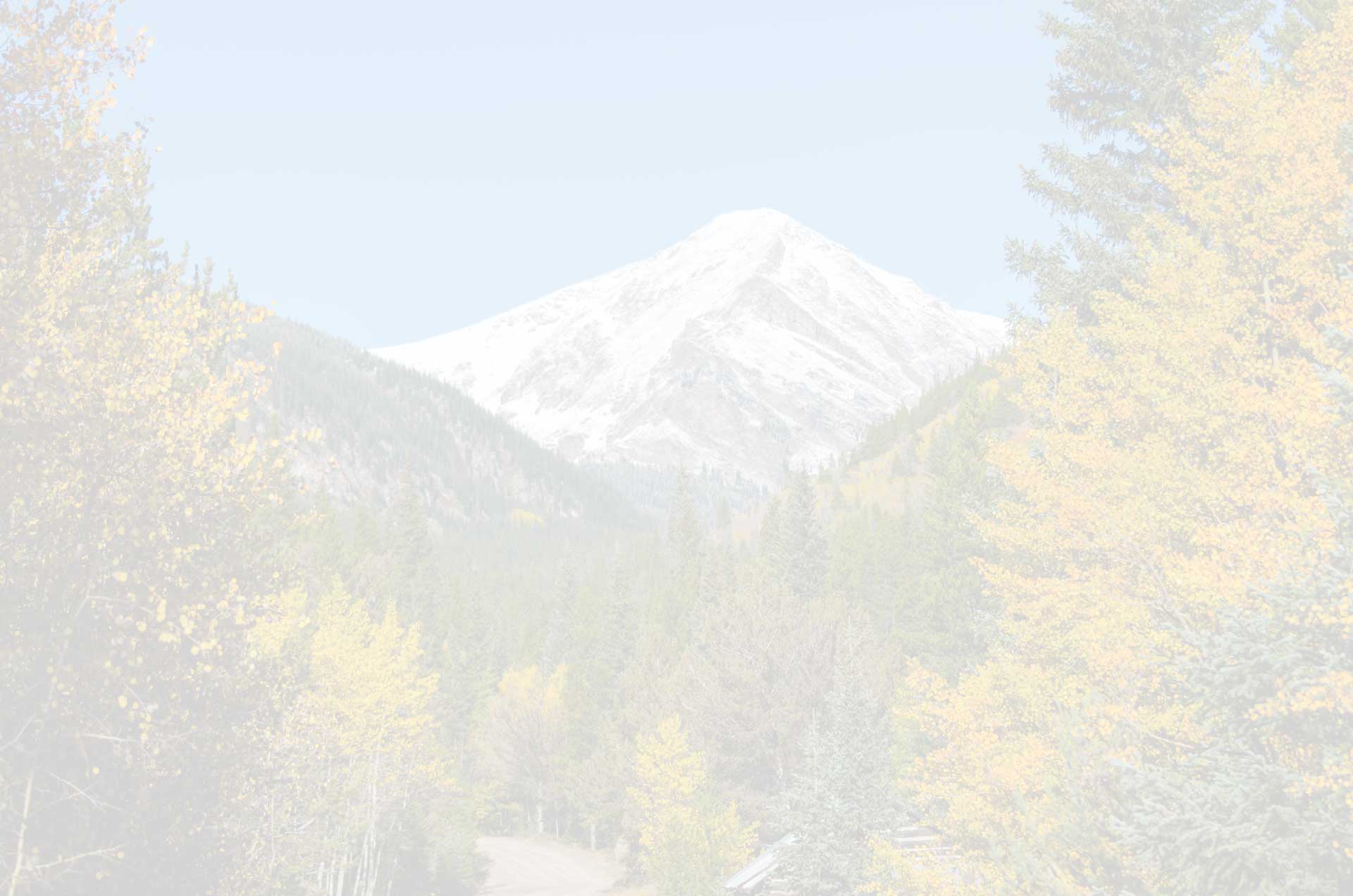(if you are viewing this via email, the website has a recording of this poem and commentary; click the title above)
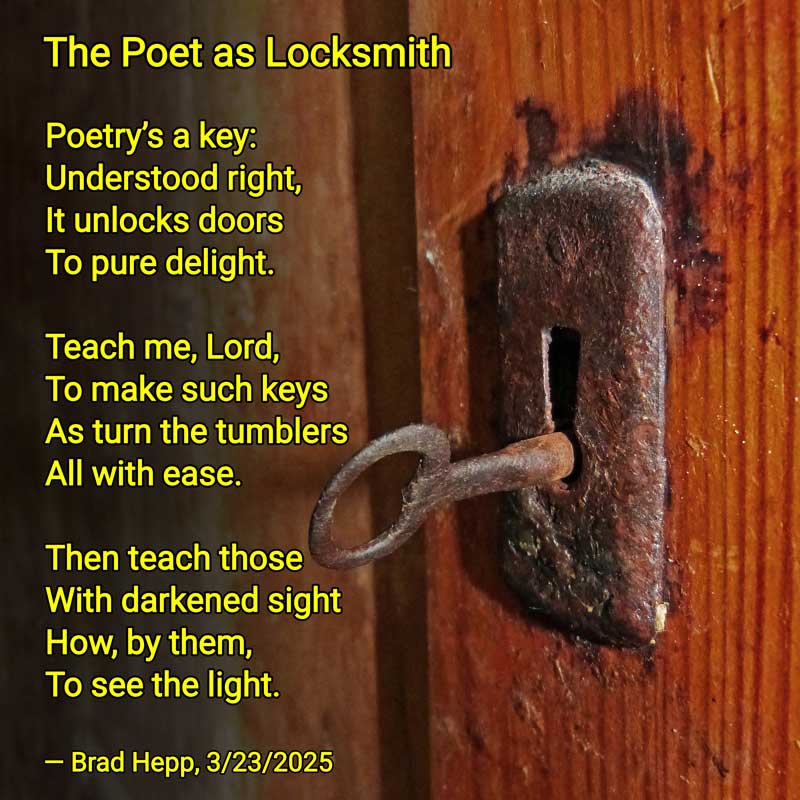
Commentary
I try to always write poetry quickly, sign my name, and NOT go back to edit. My official, virtuous-sounding excuse is that I believe that to be the way I’ll become more fluent as a poet. If I’m always questioning my muse, she’ll become shy and hesitant. Right? It doesn’t hurt that this approach perfectly fits with my laziness! See another poem where I do some other self-justifying: “Socks Like Poetry.”
Today’s poem is one that I edited TWICE after publishing it on social media. In some respects, it’s better… otherwise I wouldn’t have bothered. But it has one downside: it runs the risk of suggesting that I think of myself as more enlightened than some who read my poetry. That’s generally not the case. When I write poetry, I’m usually grasping at things I barely understand! We’re all benighted, to one degree or another. We all need each other’s help to see the light, and experience God’s delight.
As for the overall concept…. The revelatory power of poetry is something I am increasingly experiencing in other poets (George Herbert comes to mind!), and hereby pray for regarding my own poetry.
(background image by Marc Pascual on Pixabay)
_________
